Coronavirus Turkey – Winning the war by not fighting battles
Embracing uncertainty and community in the time of Coronavirus
Turkey officially announced its first recorded case of Coronavirus late on March 10, 2020. The next day the World Health Organization declared it a pandemic. From the beginning many countries, their politicians and their media have framed the pandemic in combative terms, using the idea that if everyone fights together, we can resist the effects of the virus, and we will win. Phrases like “We are waging a war against the Coronavirus” and “We have to battle Covid-19” are commonplace. They are used with the intention of rallying people, as though they were troops, to create a sense of unity.
Unlike in real wars, this enemy is invisible and seemingly everywhere at once. No one is exactly sure how it transmits. Is it through touch, off hard surfaces, from sneezes, in droplets of sweat or attached to particles of polluted air? Scientists have been correlating data as fast as possible so we do know older people, and people with pre-existing conditions regardless of age, are in the high risk category. Yet science can’t explain why seemingly healthy children have died after contracting the virus. Worldwide, different leaders have implemented health department approved measures such as testing, contact tracing, stay at home orders and social distancing. The success of the latter two is predicated on the idea citizens will do as they’re told. However the world is made up of people not soldiers so unquestioning obedience isn’t a given. Additionally, there is no common agreement as to what works best and strategies differ from country to country. Within each nation there are further segmentations as various states, council districts and even individual neighbourhoods take their own approach. Add to this the fact that what we know changes from day to day as the science dictates, and all that is certain is uncertainty.
As time passes and what we don’t know becomes clearer, people are becoming increasingly stressed, fearful and confused as to what they should and shouldn’t do. When arguments break out over who’s right and who’s wrong, the combat lexicon, with its ‘us and them’ dichotomy, pushes people further away from each another rather than bonding them through a sense of belonging.
I live in Istanbul, Turkey, and from the very first day I noticed there was a different dialogue going on. The Turkish lexicon around the Coronavirus embraces uncertainty and builds on an already strong community structure underscored by Islam.
I’m a planner and I like order and routine but in Turkey nothing is certain in everyday life, no matter how hard you work or how carefully you plan. The only thing consistent about plans is they can change at the last minute. At the eleventh hour, when it’s too late to book or extend your holiday, extra days off are tacked onto existing official long weekends. Thirty minutes before they’re due for dinner friends ring to cancel because distant relatives from a far flung town or village have phoned to say they’re coming to visit. As you’re speaking you hear them knock on your friend’s door.
Living with uncertainty is linked to the Islamic belief Allah determines one’s fate. According to the Koran Allah rewards those who strive hard, but hard work alone does not guarantee success. Allah will decide. For highly religious Turks this is an unarguable truth yet even the least religious Turk will utter the word “Inşallah” (If Allah wills) when talking about their hopes and dreams. Just in case. They could be chatting about something as straightforward as attending their weekly dance class, passing an exam they’ve studied hard for or delivering a healthy baby after a textbook perfect pregnancy. The ideas inherent to the word inşallah are so deeply ingrained in Turkish society that the distinction between sacred and secular is blurred. I initially struggled with this aspect of Turkish life because I like to believe I can achieve what I want through my own volition. Now I recognise the value of being able to accept I have no control over everything that goes on. Thinking I can always change things if I just try hard enough gets me nowhere.
I’m seeing online posts from friends living in the UK, Australia, the US and elsewhere, asking questions about the Coronavirus and making suggestions riddled with anxiety, panic and fear. They’re fuelled by Facebook and Twitter feeds full of threads about how to identify the symptoms, instructions on what to do if you think you have it, World Health Organization reports, misinformation, leaked documents alleged to be classified government correspondence, frighteningly clear graphs, confusing statistics and dire warnings. I read many of the same posts and as much news as I can, in both English and Turkish. I talk to friends in Istanbul via Skype, WhatsApp and Messenger, and with shopkeepers and neighbours on my infrequent outings to buy food. We all speculate about the Coronavirus. Where did it come from? Will we get it? Is it really that bad? Our conversations are rife with contradictions, ambiguity and guesswork.
Even under normal circumstances my Turkish friends have a hard time trying to decide what information is true and what’s false, who to trust and who to ignore. Everyday life in Turkey is often surreal and disorientating and something as simple as asking for directions can be fraught. Ask one person how to get somewhere and you could get lost. Query the information with a second and likely they’ll contradict the first. Check with a third and then take whatever direction at least two of them agree on. After you’ve walked a couple of hundred metres, ask again. Living in Turkey for many years I’ve been on the receiving end of numerous last minute changes to my social life, living arrangements and even Turkish laws that were altered almost as soon as they were enacted because the consequences of the amendments hadn’t been considered in advance. These experiences and those of my Turkish friends have taught me the wisdom of not acting immediately when receiving new information, even if it seems urgent. Sometimes the best option is just to wait and see.
At the moment, although everyone’s finding it tough not knowing when or if life will revert to pre-Coronavirus days, most people I speak with express joy at the little ‘big’ things going on in Turkey. Kindnesses like a young man dressing as Spiderman to run errands for older residents in Antalya or a talented street sweeper giving a spontaneous dance performance in Istanbul to cheer up residents confined to their homes. The municipalities providing food hampers to families in need and the army delivering medical supplies such as oxygen tanks to those living in remote areas. These actions are taking place in small towns and huge cities across the country and represent a particularly Turkish idea of community best expressed in the word imece.
Strictly translated imece means collective work and originally referred to how villagers voluntarily collaborated to help each other out when building a new shed or arranging a big event like a wedding. In a broader sense it relates to the way the wellbeing of the community takes precedence over the desires of the individual. Everyone has a social responsibility to help when they can and community is a practice, not a concept.
Community can mean different things to different people; belonging to the same family, living in the same neighbourhood, sharing the same memleket (hometown), being part of the same social group, or being a member of the same district and nation. Equally important and coexisting in the same space in Turkey is the idea of community as a set of shared religious beliefs and practices. These are based on the five pillars of Islam, the foundational obligations all Muslims are expected to meet. Zakat, helping those in need, is one of them. Although the idea of zakat originates from Islam, the practice of giving in daily life in Turkey is not limited to those who pray in a mosque five times a day. People who only participate in prayers on special holy days and at death ceremonies, or those who have eschewed religion altogether, also provide for others if they can. It could be through askıda ekmek when they buy an extra loaf of bread for the baker to hang on a hook to give to the indigent, giving new clothes to their cleaner’s children on a religious holiday or letting someone use their transport card and refusing to accept payment. Religious, secular or atheist, members of the modern day Turkish population see it as their duty to assist others if it’s within their means.
In the traditional practice of zakat, the donor and receiver should remain anonymous to one another to spare the person in need from embarrassment. In pre-Ottoman times one way this was achieved was through the use of stones called sadaka taşı. They would be placed in mosque courtyards so donors could put money in a hollowed out section at the top of the stone. This would later be removed by the mosque authorities for distribution to the disadvantaged. In response to the economic hardship caused by job losses due to the Coronavirus, a young imam (mosque leader) in Sariyer, Istanbul, referenced this idea when he set up an area of his mosque as a foodbank. People who are financially able donate food and other household products for people in financial straits to come and take. In Izmir, on the west coast of Turkey, four entrepreneurs created a website for people who can’t pay their bills to register so anonymous donors can pay their debts. Calling this idea Askıda Fatura (Bill on a Hook), the state and other city councils also asked Turkish citizens to help those in need. In Istanbul, the Municipal Authority reported that the equivalent of one million US dollars was donated in just 30 hours. As with the mosque, applicants for aid are vetted and once approved can apply to have their utilities and other bills paid up to a set amount, from donations. In all these cases donors and recipients retain their anonymity.
These are just two examples of how traditional Islamic practices in Turkey blend with a strongly developed collective social conscience to address problems caused by the Coronavirus. The arrival of spring in Turkey resulted in another when large numbers of older people met up to enjoy the beautiful weather one Saturday towards the end of March. They ignored the call to stay home unless absolutely necessary so a curfew for over 65 year olds was put in place starting midnight that same night. They weren’t allowed out at all. Not even to go to the shops. Hotlines and help services were in place by Monday morning and included council workers calling on those with no family to assist them, to do their shopping, pay their bills or go to the chemist. In addition local councils started preparing and delivering hot meals. This parallels the Islamic tradition of imaret, soup kitchens attached to mosques, providing food for anyone who turns up at the door. It predates the Coronavirus by centuries and highlights the importance of food in Turkish and Islamic cultures. A population that gets enough to eat is more likely to follow instructions, whether they come from religious or government authorities.
As more and more of us are at home all the time now, food and how we obtain it has taken on a new significance. I live in a block with 18 apartments and there’s been a marked increase in the number of drivers turning up to deliver supermarket shopping and take outs. The most recent conversation on the residents’ WhatsApp group we normally use to talk about monthly fees, maintenance work and to wish each other happy holidays, concerned disinfecting the common areas of the building, including the elevator, and controlling the entrance of delivery personnel. The debate went on for several days with everyone weighing in and finally we all agreed to have a sign on the street door telling delivery people they aren’t permitted to enter the building. Even though the delivery people are masked and gloved the general feeling was it’s better to be safe than sorry. This means whenever someone arrives with a parcel or food order the recipient has to go down and bring it up themselves. The only exception is for water deliveries. No one wants to carry a 19 litre bottle to their apartment, even with a lift. To date no one’s complained and as far as I can tell everyone’s sticking to the arrangement.
Despite all the chaos and confusion I’m experiencing, two things remain certain for me about life in Turkey, pandemic or not. Firstly, not knowing what to expect isn’t the new normal. It’s already normal. Period. Secondly, every person here is connected to the person next to them, whether they’re strangers waiting to see the same doctor at the hospital, passengers on a bus, shoppers in a supermarket or me, the foreigner speaking Turkish oddly, trying to learn the way. Unpredictability is part of my daily life so the impact of not knowing when and how the current situation will change or end is lessened as I focus on the little things that give great comfort. Things like the messages at bus stops in Istanbul and on the front of buses which read, “Birlikte başaracağız”. Together we will succeed.
Find out more about what it’s really like to live in Turkey in my books Exploring Turkish Landscapes: Crossing Inner Boundaries & Istanbul Dreams: Waiting for the Tulips to Bloom.
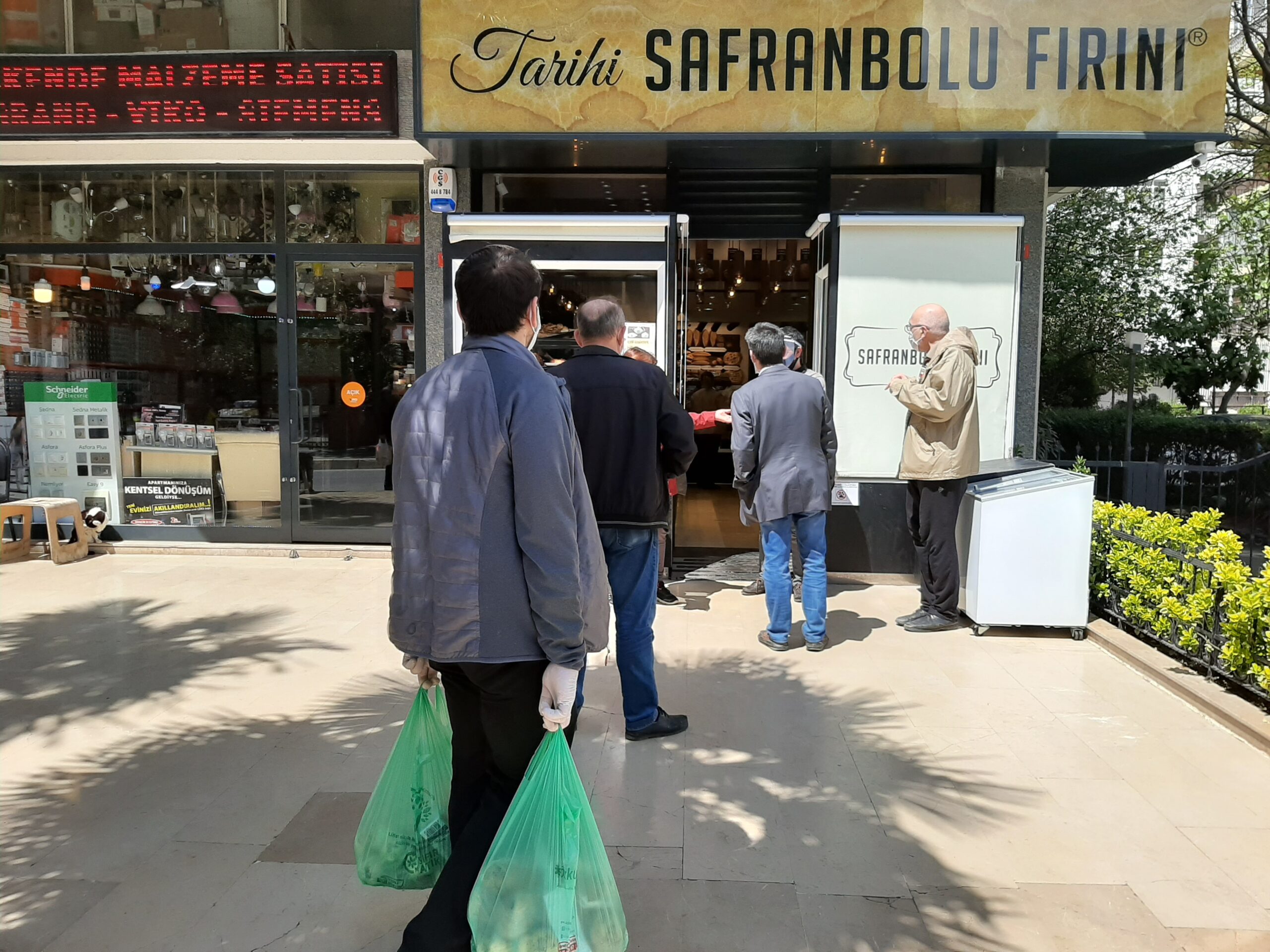
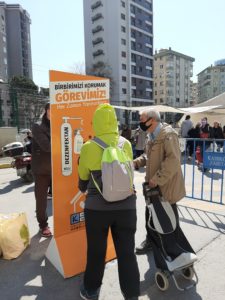
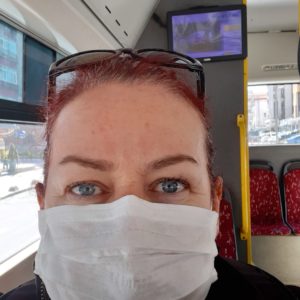
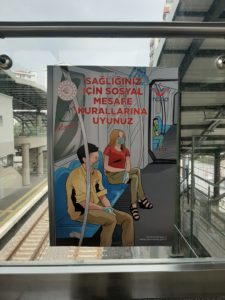
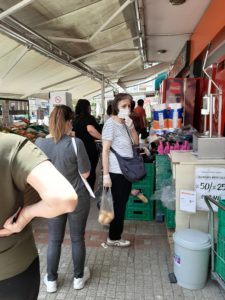
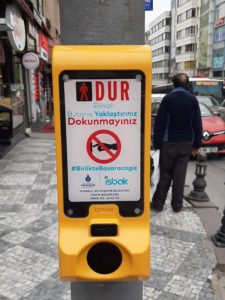
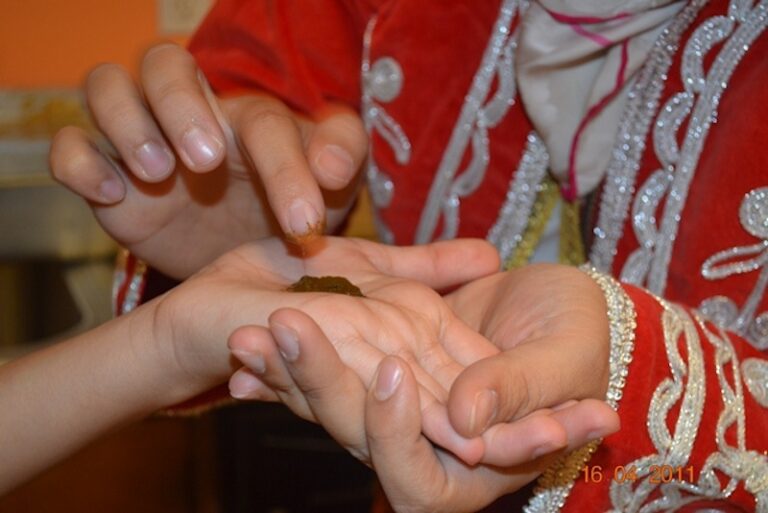
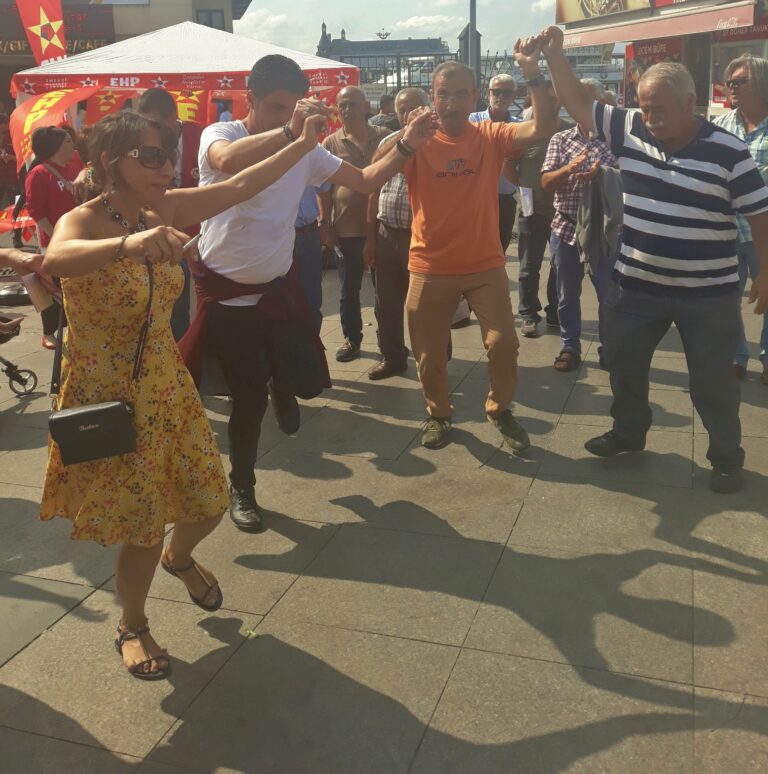
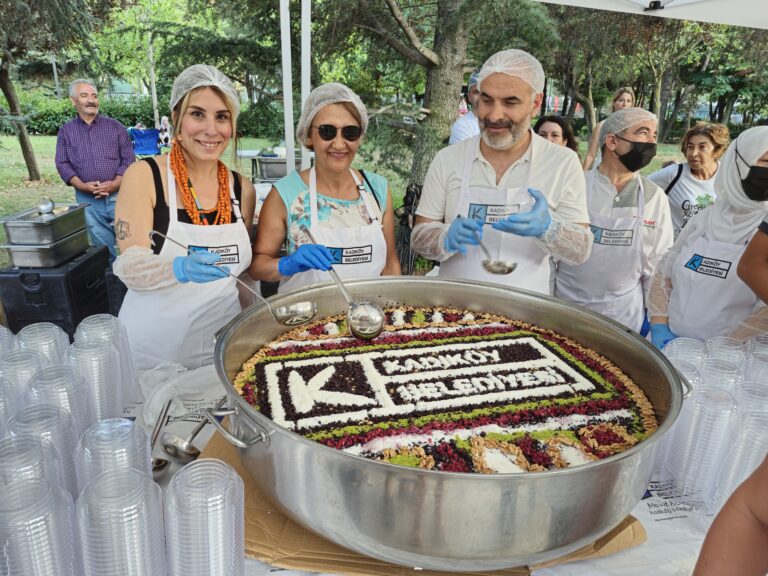
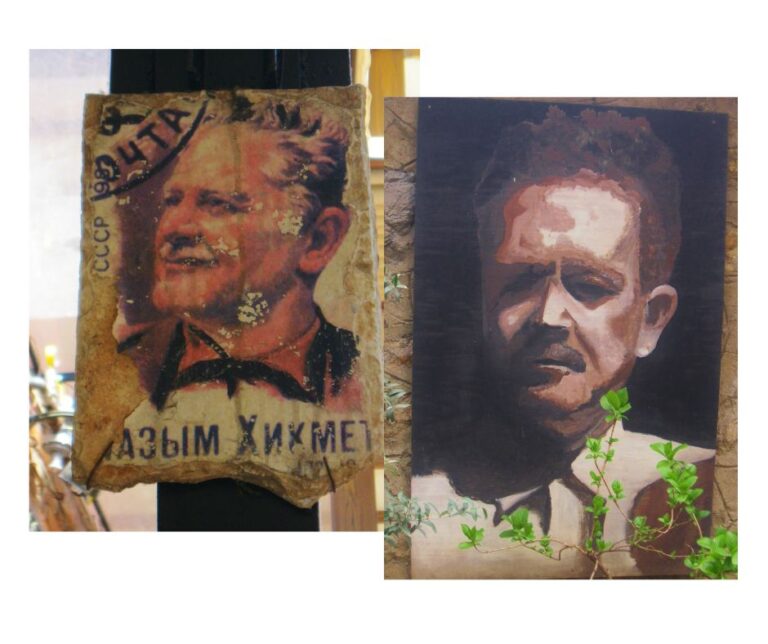
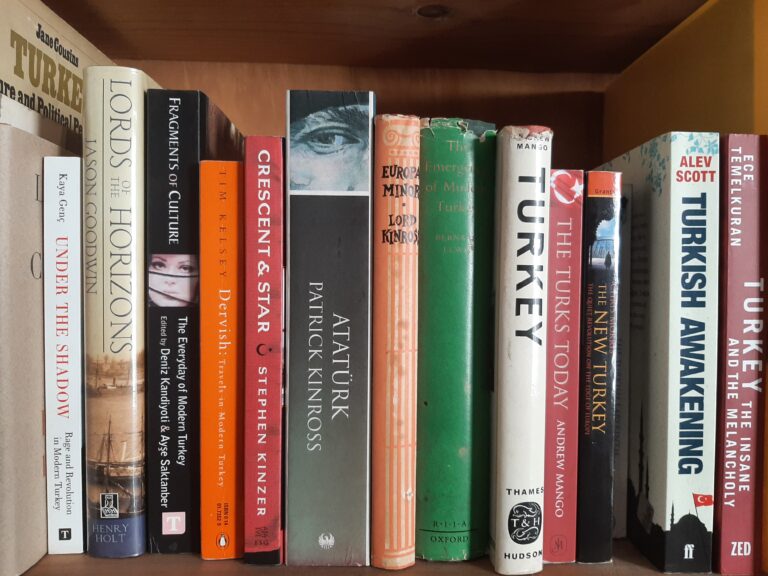
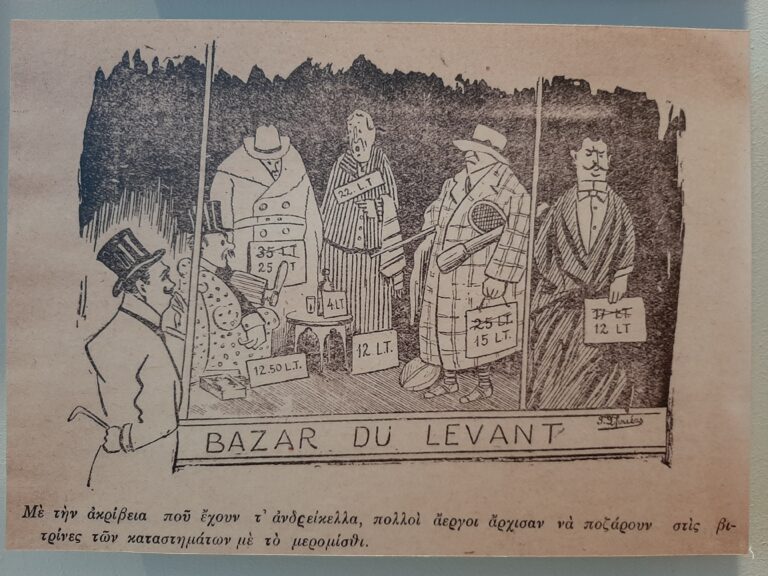
It’s so good to the people who getting some assist, let all might God bless you in generally.
Thank you for your kind words Hassan. I feel very lucky to live in this country.
Wonderful blog post this, really informative and puts most of the current situation in a nutshell (apart from us over 65s were put on ‘shielding as it’s called in Scotland, a protected status) from the Saturday night, when we all received a text from the President and there it was Sunday morning we were inside. We are lucky we are in Dalyan and in a villa for four apartments on a stretch of road with only 5 villas, so we are on our own. Slowly, slowly delivery drivers have actually realised they have to find us as we look merely like an access road to a pomegranate field, not all of them appear with masks or gloves. It’s hard to convince people COVI-19 is real.
I too like to plan and have to accept I just ain’t got one now.
I do love this post of yours great information.
Hi Rosie, Thanks for your wonderful comments, and for reminding me to check the date the curfew started for over 65s! The days blur, don’t they? I hope you stay safe and well given the lack of measures taken by the delivery people in your area, but I’m glad the virus means you can now receive deliveries. Until a few years ago, nothing sent to me by mail ever arrived, and I live in Istanbul. I’d always use a friend’s work address. Luckily that’s changed now but when the mail man does come I have to go downstairs and meet him at the main door. Some days that’s the only exercise I get! BTW feel free to share this post, I’d love more people to know what life is really like here. Cheers, Lisa
Hi Lisa,
I have shared on Facebook and I hope others pick the post up. Is it okay with you of I share this next week on a new blog I’ve just started? I think you have the details when I’ve commented.
Thanks for sharing it on FB. I’m happy for you to share this post on your blog next week, as long as it’s done as a link to this site. Please feel free to contact me on Goreme1990@hotmail.com if you need any other information.